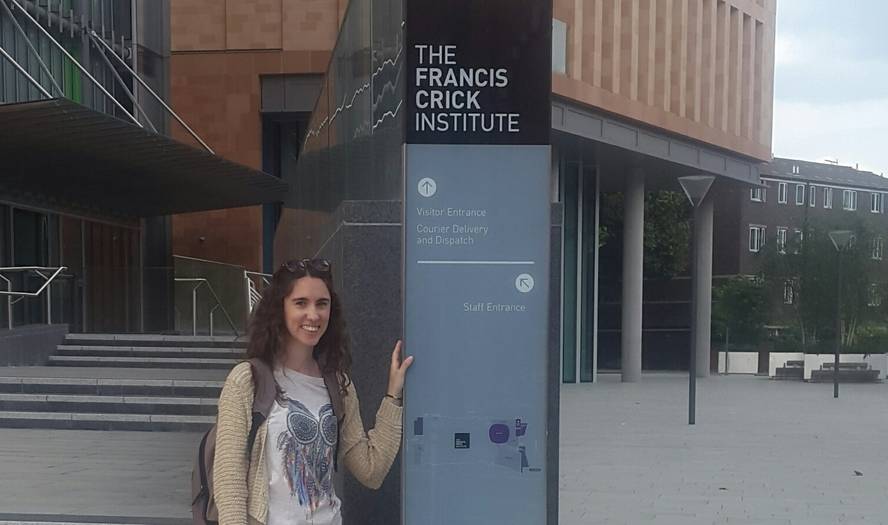"Everyone has to look for their options"
Edurne Mugarza Strobli liked science as a young man, especially molecular and cellular science. He says that medicine also seemed very interesting, “but I didn’t see myself as a doctor.”
He studied biochemistry. At that time he realized the importance of research to cure many diseases. “I’ve always had a special interest in cancer and behind all the medicines used in medicine there’s a huge research job. That encouraged me to practice in the lab. I loved its dynamics and realized that I wanted to continue in this world,” he explained. And he adds: “I slowly entered this world and for the moment I have not regretted it.” For this reason, it has come to many people, since to acquire the experience it is essential to carry out the practices, but it is not easy
to be admitted in an internship laboratory. Therefore, consider that you have to be an entrepreneur: “Everyone has to look for their options, that is, if you want something, you have to look for the way to get it.” On the other hand, he recognizes that the work of
researcher has positive and negative aspects. “For most people it is very difficult to understand the hours we spend in the laboratory. This is not a '8 hours daily' profession. It is easy to be on a normal day 10-12 hours in the lab or work on weekends. You have to really like what you are doing. But it also has good things, for example, there are no schedules, everyone can distribute the time as they want.”
Stimulation and peer support
In addition, Mugarza believes that having a good relationship with his coworkers is of great importance. “I am convinced that this is very important in all professions, but especially in this one, not only because we spend many hours together, but because few people can understand what it feels like when an experiment doesn’t work.” Moreover, he says that every day he learns something from his companions: “It’s very motivating to be in an environment where everyone has a passion for science.”
He is now studying in London, where he will spend the next four years. Then he doesn't know what he's going to do. You may still be researching, but if you want to try something more it is clear that it will be in the field of science or medicine.
“I don’t have much sleep,” she says modestly. However, there is something I would love: “For me the most beautiful thing would be to help a patient who one day suffers from cancer because of something I have discovered or worked on.”
Edurne Mugarza Strobl was born in Pamplona in 1992. He studied Biochemistry at the University of Navarra for four years and spent those summers doing internships in Pamplona and Chicago. He then spent two years pursuing a master's degree in Germany, a speciality in Cancer Biology, and for 3 months pursued an internship in London. He is now at the Francis Crick Institute in London, where he holds a doctorate, where he will spend the next four years on a cancer immunology project.







